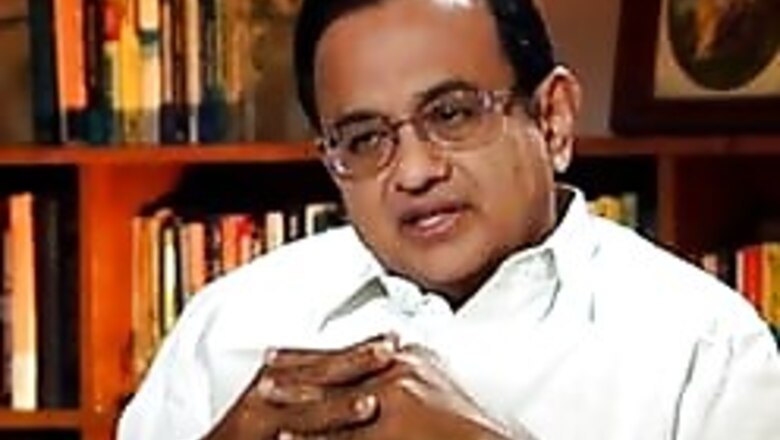
views
New Delhi: India's annual rate of inflation rose to a new high of 7.61 per cent for the week ended April 26 from 7.57 per cent for the week before amid assurances from Finance Minister P Chidambaram that more steps will be taken to rein in prices.
The data on official wholesale price index (WPI) released Thursday revealed that there was an increase of 0.2 per cent during the week on account of a 0.5 per cent rise in the sub-group of food articles even as non-food items declined by 0.2 per cent.
Speaking to reporters later, Chidambaram maintained that the rise in inflation for the week under review was not significant statistically and that no country in the world was witnessing a downward trend in prices.
“It is a matter of relief,” the finance minister said, adding: “More administrative measures will be taken if needed. We are also persuading cement companies to roll back prices.”
"More administrative steps will be taken as and when they become necessary to check inflation, Chidambaram said while pointing out that government was trying to persuade cement manufacturers to cut prices.
Referring to inflation inching up to 7.61 per cent from 7.57 per cent, Chidambaram said the movement "in our assessment means that it is stable and not statistically significant".
The Government, he said, has already taken various administrative steps to check inflation like banning futures trade in four commodities and persuading steel producers to voluntarily cut prices.
The Government on Monday extended ban on futures trading to four more agriculture commodities-- chana (gram), soyoil, potato and rubber.
The Minister said, "We are in the process of persuading cement companies to roll back prices. If that succeeds, that will also be an administrative step".
"We are as concerned as everyone else. That's why we are taking steps. Every week there is a roll out of some steps or the other. If necessary more steps will be taken," he said.
On the impact of the initiatives taken by government and the Reserve Bank on prices, Chidambaram said, "When the steps come together and take effect, there will be moderation. That's what the Prime Minister suggested in Bangalore. One must have faith that these steps will yield results."
Commenting on the negative reaction of the Forward Markets Commission (FMC) to government's decision of banning futures trading in four more items, Chidambaram said, "FMC is an independent regulator. We are a democracy. FMC is entitled to express its views. The government has taken the decision after careful consideration."
The government earlier in the week banned futures trading in four commodities -- gram (channa), soya oil, potato and rubber. It had already banned futures trading in wheat, rice, tur and urad last year.
The Minister further said, "In fact it (inflation rate) has come as a big relief that it is more or less stable at 7.6 per cent. Even two weeks ago I said that inflation will remain at this level for some time before it begins the downward trend." "Steps are taken with the intention and expectations that they will bear fruit. Text-book economists tell us that this will bear fruit," he said.
Pointing out that in no country inflation has moderated, Chidambaram said, "I have just returned from Madrid. Each one of the 67 finance ministers was concerned about inflation."
Inflation, he said, is not coming down globally because "there has been continuous rise in oil prices which touched 124 dollars per barrel and also because of continuous rise in food prices. Commodity prices have not yet started moderating in international market."
In the Indian market, Chidambaram added, "as the minister of state for industry (Ashwani Kumar) has said we have began to see a moderation in some prices. This will reflect in the index only later. Index we are talking about is for week ended April 26, 2008."



















Comments
0 comment